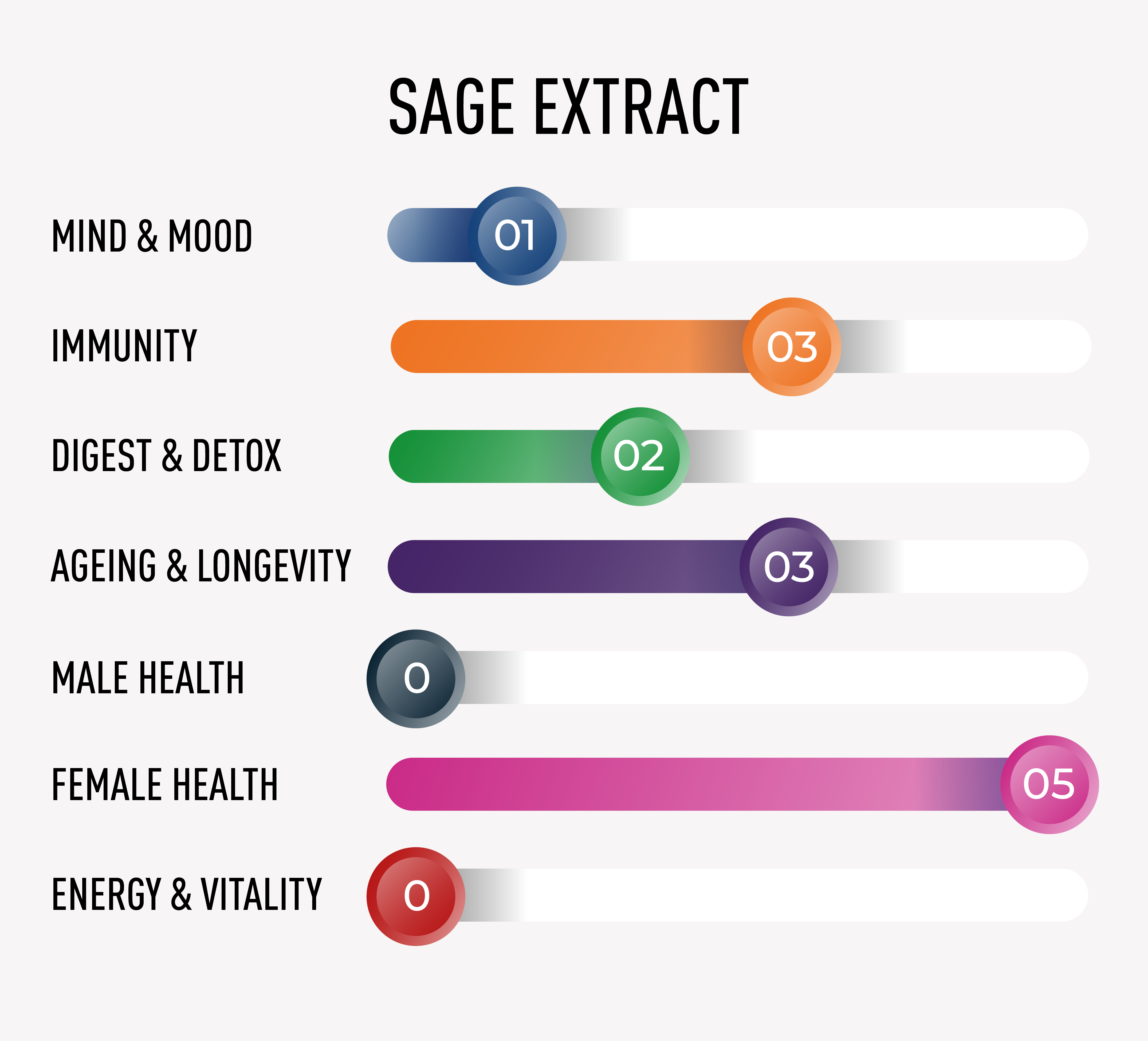Our herbs offer powerful herbal benefits and are not limited to just one category. Discover the full range of what each herb can do:
Sage
Salvia officinalis (Lamiaceae - Mint family)
Also Known As: Common sage, garden sage, kitchen sage, true sage, culinary sage
Ayurvedic Names: Not traditionally used
TCM Name: Traditionally use Salvia miltiorrhiza (Dan shen)
TRADITIONAL USE
Sage has been an important medicinal plant since ancient Egyptian times when it was used as a fertility treatment.
The ancient Greek physicians Dioscorides and Galen recommend sage for wound healing, female health, and as a diuretic.
FOLKLORE & HISTORY
The Latin name of sage is “salvia,” which comes from the words meaning to save or to heal.
It’s been used as a primary medicinal herb since ancient times. It was commonly thought that sage strengthened the memory, hence a "sage" or wise man always had a good memory.
HERBAL ACTIONS
Anti-inflammatory, antibacterial, diuretic, tonic, antispasmodic, antioxidant, antiseptic, antimicrobial, carminative, relaxant, anhidrotic.

Mind & Mood: Memory, cognitive health, depression, anxiety
Immunity: colds/flu, immunity, respiratory health
Digest & Detox: Digestive health
Ageing & Longevity: Excess perspiration
Female Health: Menopause, menstrual cramping
Tannic acid, oleic acid, ursolic acid, carnosol, carnosic acid, fumaric acid, rosmarinic acid, ellagic acid, rutin, chlorogenic acid, caffeic acid, nicotinamide, iron, vitamin A, C, B6, E, and K, calcium, manganese, zinc, copper, flavones, flavonoids, polyphenols, glycosides.
Contraindicated with: Diabetic medication, seizure medication, sedatives, anticholinergic medication, cholinergic medication, oestrogens, blood pressure medication, medications changed by the liver, P-glycoprotein substrates,

